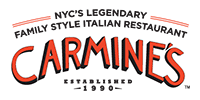Radical/Networks
October 24-25, 2015
Integrated Digital Media
MAGNET NYU Poly, Brooklyn, NY
Sarah T. Gold
Sarah is a London based designer operating at the creative edge of emerging technologies and digital infrastructures. She is well known in the UK tech-scene for her pioneering work on the Alternet, a proposal for a civic network. Her work extends from the Alternet to imagine, build and test future web infrastructure and digital tools for a more democratic society.
Originally a student of architecture (first), Sarah chose to change direction and complete her masters degree in industrial design (distinction) at Central Saint Martins. Architecture gave Sarah a strong belief in the importance of public space and design for the common good. This civic design focus has continued to influence much of Sarah’s work.
She is co-founder of WikiHouse Foundation, a Royal Society of the Arts Fellow and an Associate at CoLAB. Sarah sits on the advisory board for Tech For Good Global and co-facilitates the Personal Data and Trust Design Group at the Digital Catapult in London.
Sarah has worked with a number of organisations on technology and digital design including NHS England and Government Digital Service, as well as for a variety of prestigious brands such as Dior and Apple. She regularly speaks at conferences and technology events on the future of the Internet, digital citizenship and how decentralised technologies can inform alternative products and services.
Presenting
Alternet
I will give insight in to how a decentralised approach could radically reshape the governance and control of the digital infrastructures we use everyday: How can decentralised technologies provide a unique way of building scalable, trusted networks and systems that can, where appropriate, be owned by everyone? What if these technologies contributed to a democratic Internet of Things, a digital commons and new forms of citizenship? What are the opportunities for disruption? I will talk about the opportunities presented by decentralised technologies, particularly how they can inform more democratic futures (not only mesh networks, but blockchain and hardware like the Tesla powerwall) and what new politics these systems might bring.
A year ago I designed the Alternet, a proposal for a civic network where individuals can own their own data through data licences. The work I continue to develop, builds on this project - critically engaging with how technically and culturally we can make social impact for a future where we are considered as citizens, not just consumers.





